Laura Kampen
Arts Therapist for Tauranga, Bay of Plenty
BA(Psych), BHSc(Hons), MAAT (Clinical); ANZACATA Registered

BA(Psych), BHSc(Hons), MAAT (Clinical); ANZACATA Registered

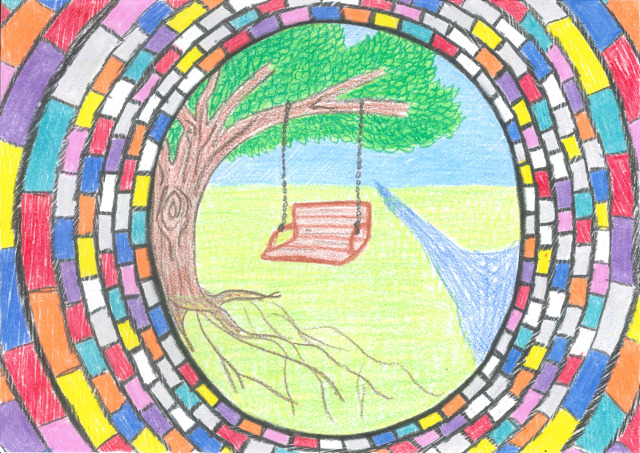
Arts therapy uses the creative arts, such as poetry, music, movement or the visual arts, as a way to express emotions and communicate thoughts and feelings with or without the need for words.
With the help of a trained therapist, a person is able to discover more about themselves, their strengths and values, as they journey to a point of wellbeing.
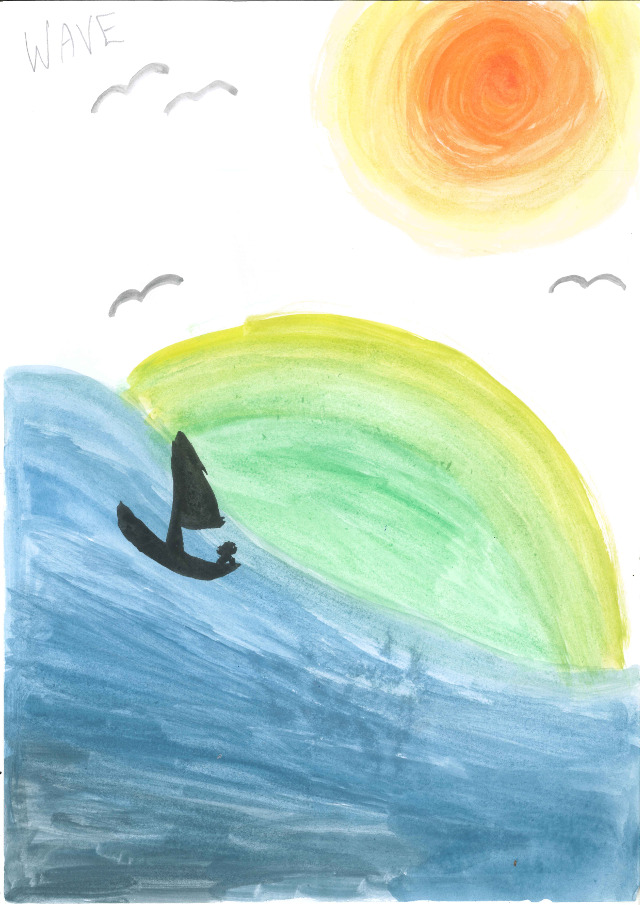
Arts Therapy can be used with people of all ages and walks of life and doesn't require you to be an 'artist' for it to work, just to be open to trying. It focuses on the creative process more than the finished product.
Arts therapy can help those who have had or are experiencing
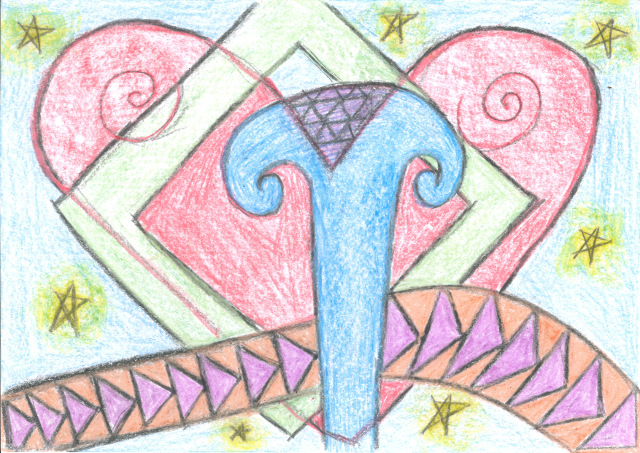
Arts Therapy is a non-confrontational, culturally sensitive therapeutic approach that when provided by a trained therapist in a safe, non-judgemental way can help a person to explore and overcome life's challenges while increasing their resilience and overall wellbeing.
It can help develop interpersonal skills, manage behaviour, reduce stress, increase self-esteem and improve insight. It can help provide healthier alternatives to a person's current coping mechanisms and help develop a person's sense of identity.
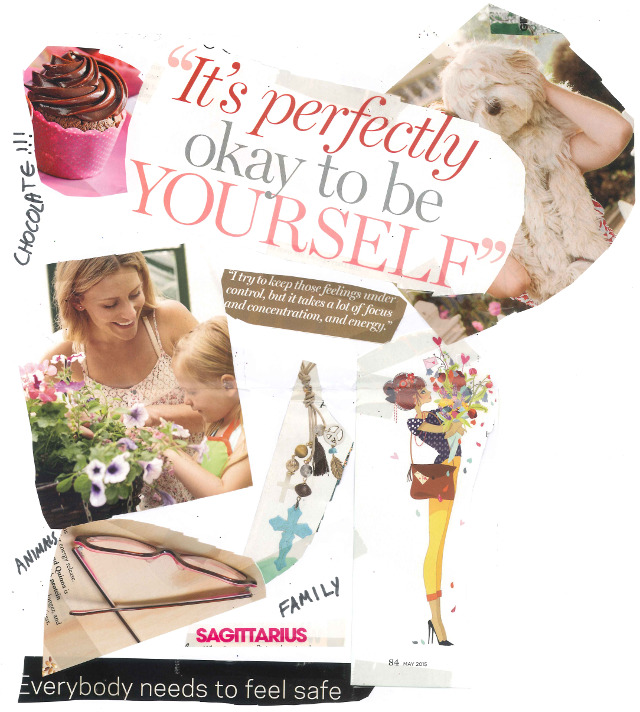
I am a trained and registered Arts Therapist (ANZACATA registered) with a background in psychology and counselling psychology. I have spent the last four years working for a Kaupapa Maori community mental health organization called Te Puna Hauora Ki Uta Ki Tai. In my time there, I worked primarily with Tamariki and Rangatahi (young people) aged 4-18 years old with a broad range of mental health issues including: ASD, ADHD, anxiety, depression, ODD and anger/behavioural issues, grief and loss, PTSD and self-harming behaviours. This work was done from a Whanau Ora approach, meaning I have also worked with the clients' whanau (families) and any other organizations involved with the client/whanau.
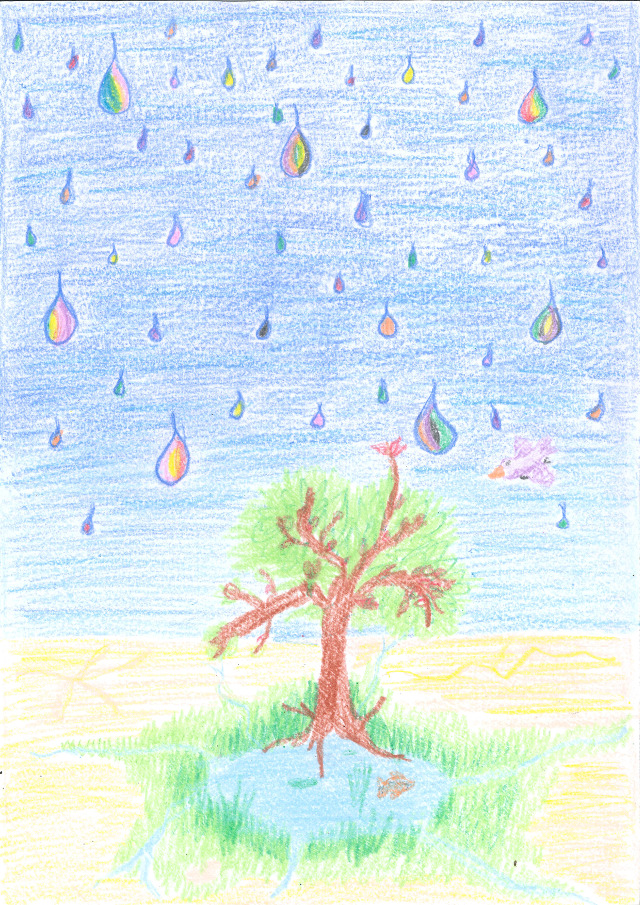
How effective therapy is, is often based on the relationship that is formed with your therapist. My belief, is that the therapist and client both have active roles. The therapist's role is to provide a safe and nurturing environment that allows for explorations and healing. The clients role is to regularly attend and participate in scheduled appointments, be open to learning new skills and work at transferring these learnt skills into everyday life.
If the client is uncomfortable or feels they are not gaining anything from these meetings, then I am open to referring a client on to other services or avenues that may be of help.
So, still wondering what arts therapy is? Here are some art works which have been creating during arts therapy sessions.
 Who am I collage
Who am I collage
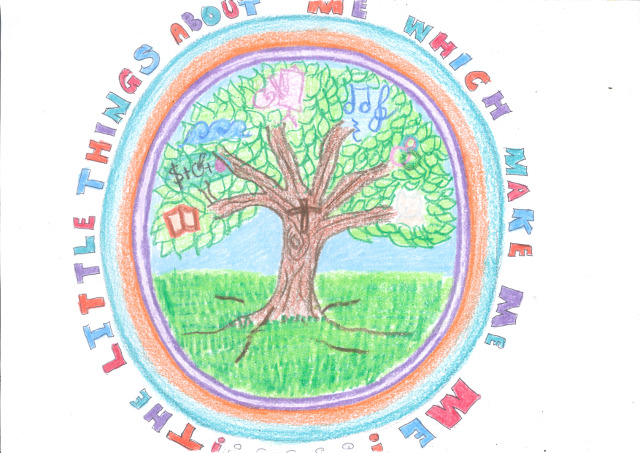 Identity mandala
Identity mandala
Arts therapy can be useful in exploring and developing a person's sense of identity.
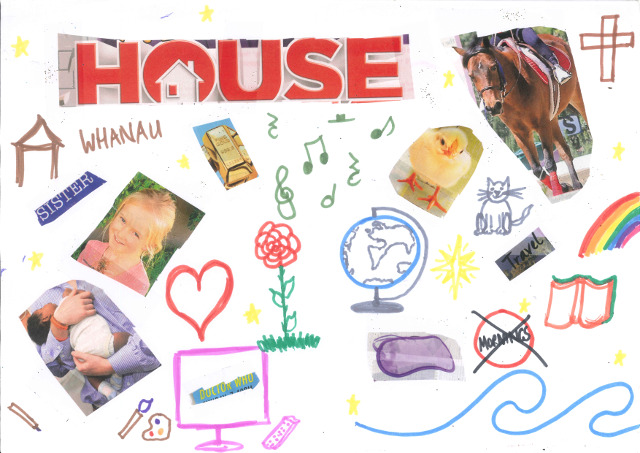 Introduction Collage
Introduction Collage
Different modalities can be used depending on a person's comfort levels.
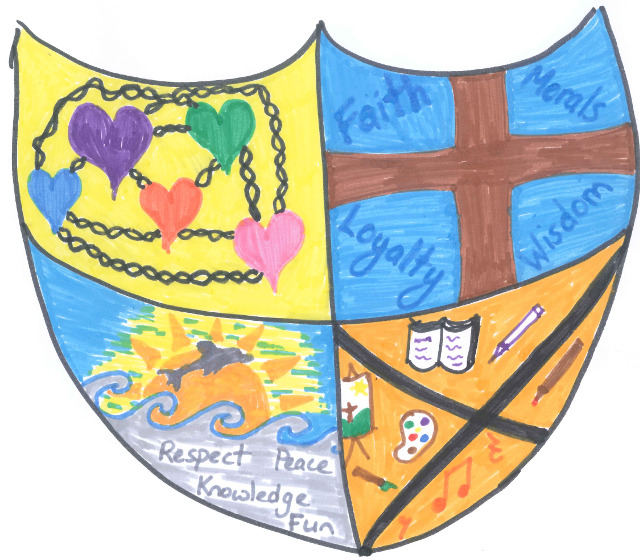 Identity shield
Identity shield
In exploring identity, a person's strengths and values can be identified.
 Ko wai au
Ko wai au
Arts therapy allows a person to use the metaphors or symbols which they connect with, which can in turn help a person to connect more with their cultural identity.
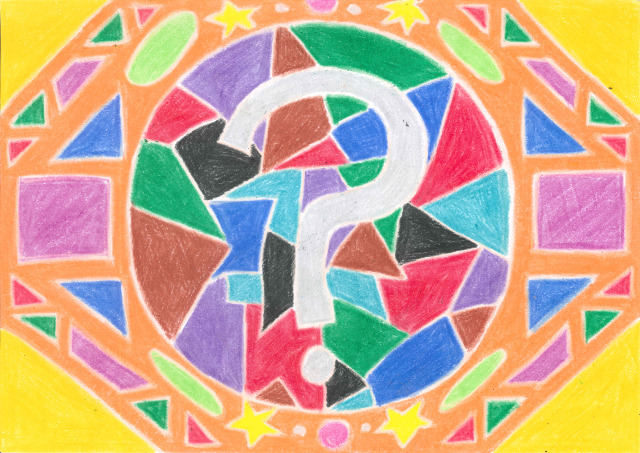 Emotion mandala
Emotion mandala
In Arts Therapy, different colours can also hold meaning and once these associations are discovered, can help a person to communicate their feelings without the need of words.
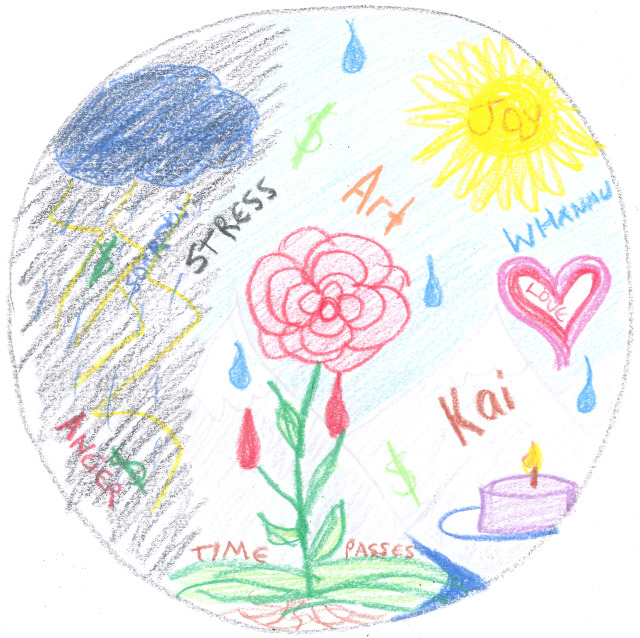 Checking in mandala
Checking in mandala
Mandala drawings can be a quick and easy way for a person to identify how they are feeling at that time and communicate this to others.
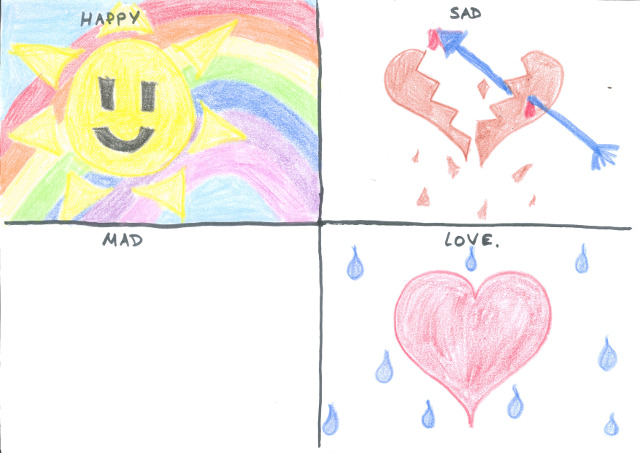 Recognising emotions
Recognising emotions
The art created through Arts Therapy does not have to be something complicated; often it is the simplest images which stand out and resonate most with us.
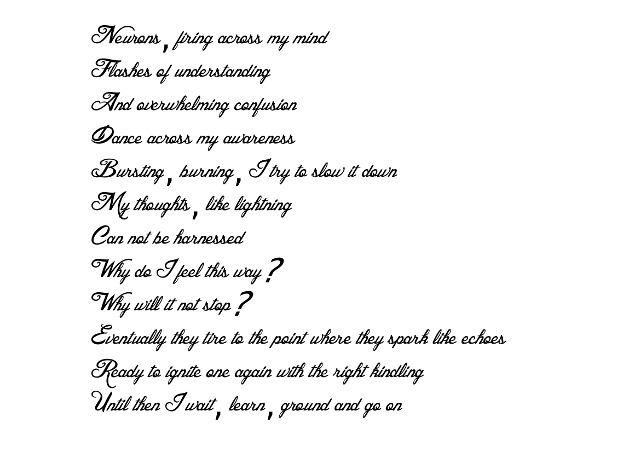 Checking in poem
Checking in poem
While the process of Arts Therapy is the focus of my work, the finished product can often end up being something a person can look at with pride and share with those close to them, helping to build self-esteem.
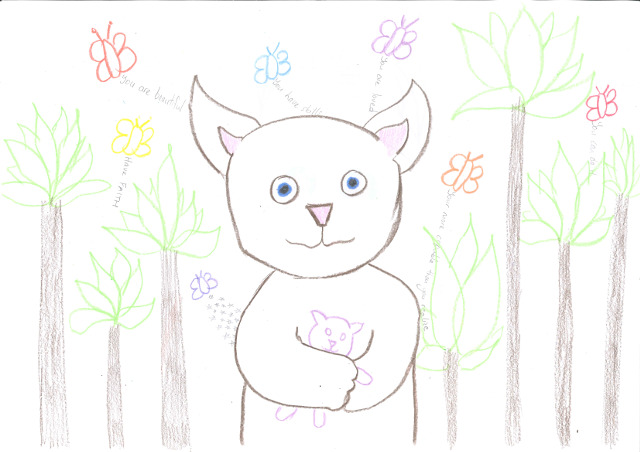 Inner Cheerleader drawing
Inner Cheerleader drawing
Arts Therapy works well with different therapeutic approaches; I tend to use CBT and positive psychology frameworks within my Arts Therapy practice.
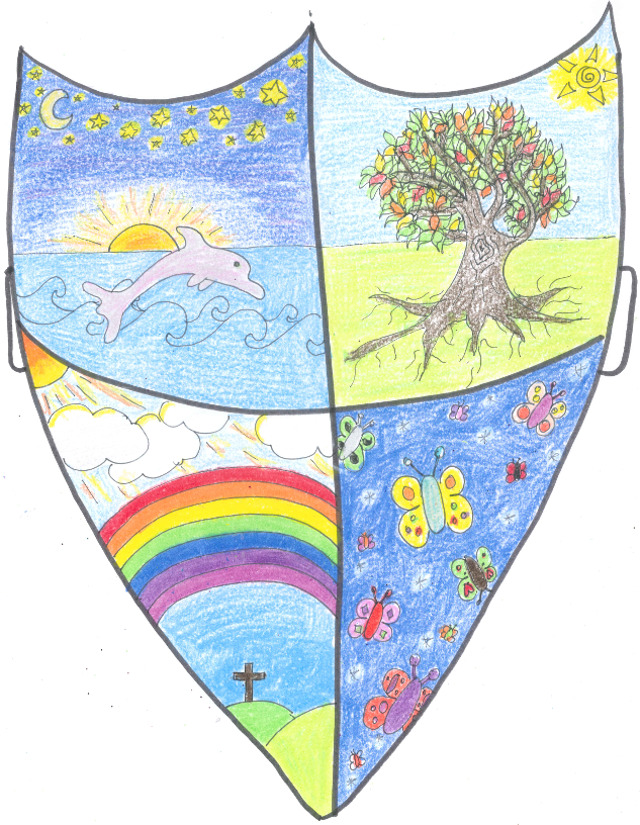 Values shield
Values shield
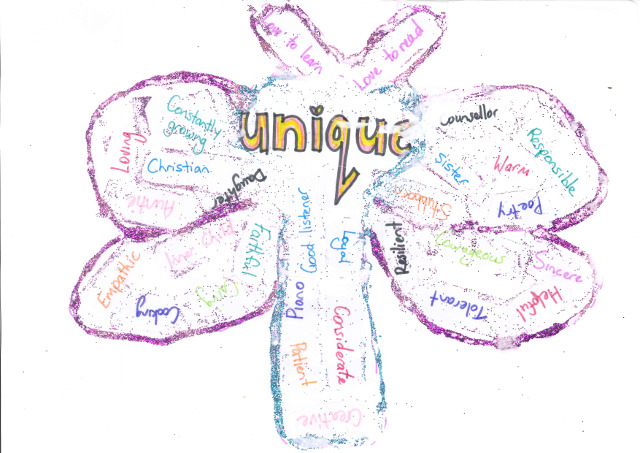 Positive traits glitter picture
Positive traits glitter picture
Arts Therapy can be used to not only explore a person's strengths, values and positive traits, but also gifts a person with something concrete to take home.
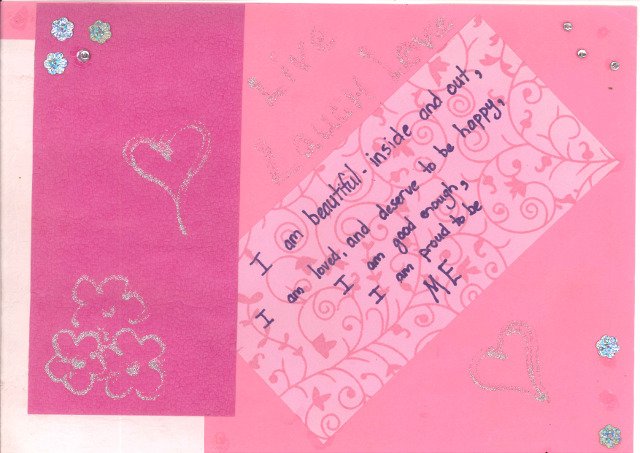 Positive affirmation statement
Positive affirmation statement
This physical reminder can be especially helpful for those who struggle to remember the work done between sessions or can be kept as a reminder for how far a person has come.
 Mindfulness
Mindfulness
Art goes well with mindfulness and can be a safe way for a person to ground themselves when outside of therapy.
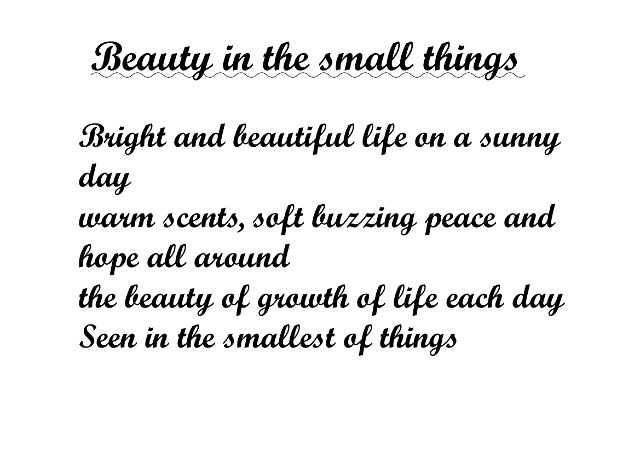 Mindfulness poem
Mindfulness poem
Arts Therapy can even sometimes help a person to discover new interests or talents which can be continued as a self-care technique in the future after a person has finished with therapy.
 Window of Peace
Window of Peace
Arts Therapy is often client led. Contrary to popular belief, I do not tend to interpret the art pieces created, but instead support the client in finding their own meanings, walking alongside them as they journey towards wellbeing.
 Starting to Heal; Oasis of growth
Starting to Heal; Oasis of growth
 Riding the wave of emotions
Riding the wave of emotions
For more information on Arts Therapy or services provided, please enquire via the form below and I will respond as soon as possible. Alternatively you can contact me at:
Email: laura@estelartstherapy.co.nz
Phone/text: 022 562 9331